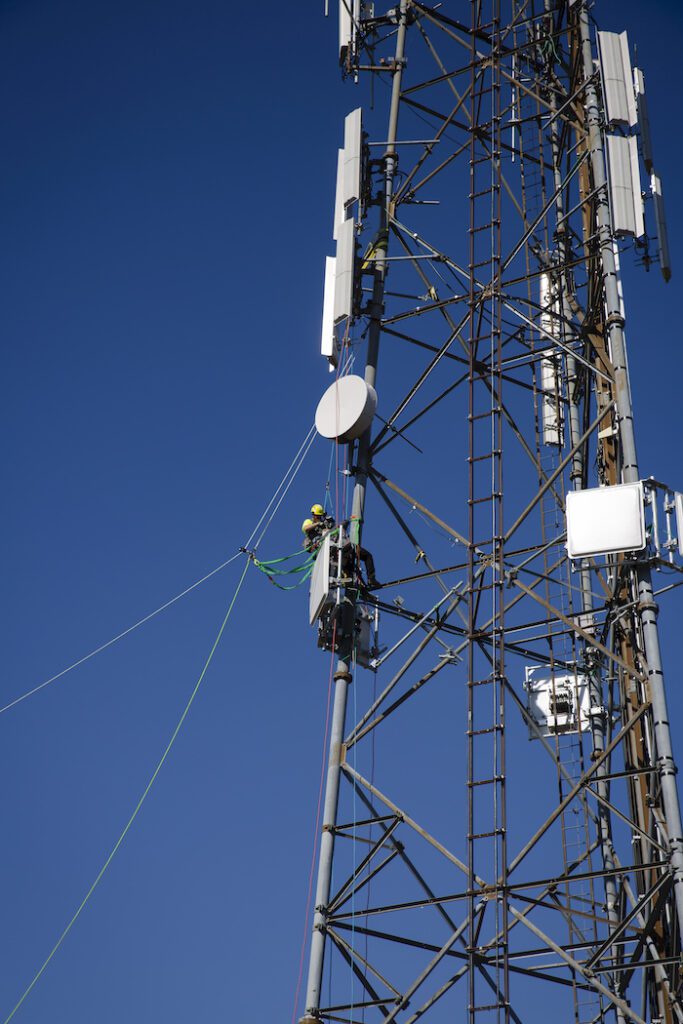
“Our team was tenacious and overcame a host of issues including Covid-19, weather, the supply chain, and geopolitical concerns, to build a new network of 150 towers nationwide – and they did it in less than 12 months.” – Gogo Business Aviation COO Sergio Aguirre
ORLANDO, Fla. — Gogo Business Aviation has completed the deployment of all 150 towers towers that are enabling its next generation 5G in-flight connectivity (IFC) network. The Denver, Colorado-based connectivity service provider confirmed completion of the new network on Monday, with a live-stream of the last tower installed for the network in Oregon during an event at the 2022 National Business Aviation Association (NBAA) Business Aviation Convention & Exhibition (BACE).
The newly deployed network now has IFC coverage for the contiguous United States, with Gogo planning to expand that to business aviation operators flying in Canadian airspace next year. Gogo has been flight testing 5G antennas, modems, SIM cards, and other equipment on the network since June 2021.
Sergio Aguirre, COO of Gogo Business Aviation, commenting on the completion of the network, said the company “overcame a host of issues including Covid-19, weather, the supply chain, and geopolitical concerns, to build a new network of 150 towers nationwide – and they did it in less than 12 months.”

Gogo’s 5G coverage map
Each of the 150 towers that enable Gogo’s 5G network are part of its existing 250-tower 3G/4G network. The 5G network is using an unlicensed spectrum in the 2.4 GHz band.
Other updates provided by Gogo upon completing the network deployment focused on the status of the 5G aircraft technologies they have been developing. Gogo’s belly-mounted MB13 5G antennas and X3 computer have both achieved “first-article” supplemental type certification (STC). The company has not released what aircraft type those STCs were completed for.
There are plans to amend that STC once the 5G chip that Gogo is awaiting becomes available. In August, Gogo CEO Oakleigh Thorne said during their second quarter earnings call that a new issue emerged in late-stage testing of the chip being developed by Airspan for the X3 system.

Above is an image of the last of the 150 towers updated with 5G antennas for Gogo’s next generation IFC network. (Photo: Gogo Business Aviation)
Development of that chip is expected to be complete by mid-2023, according to Gogo’s latest statement released about its status and performance.
Gogo has already reported connection speeds on average of up to 25 mbps on flight testing of the existing network.